Liz Truss heads to Balmoral to be anointed Britain’s new PM
Liz Truss, a former anti-monarchist, will be formally anointed by the Queen in Scotland, before making a slew of new appointments.
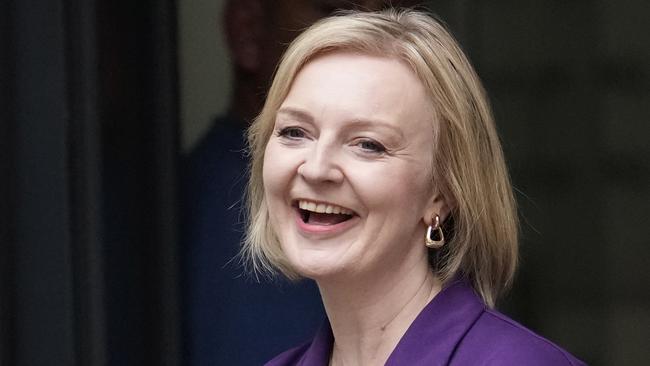
Liz Truss will be formally anointed as the new British prime minister on Tuesday afternoon local time (Tuesday night AEST) during a meeting with the Queen at Balmoral Castle in Scotland, after which a slew of new cabinet appointments will be made.
Home Secretary Priti Patel resigned shortly after 47-year-old northerner Ms Truss won the Conservative party’s leadership race with 57 percent support from the Tory membership, ahead of Rishi Sunak on Monday.
Ms Truss is set to replace Ms Patel with another woman and leadership rival Suella Braverman, while James Cleverly is expected to be named foreign secretary. Roles are also expected to be found for other leadership candidates Penny Mourdant and Kemi Badenoch.
Kwasi Kwarteng, who is Ms Truss’s closest political ally, is poised to become Chancellor of the Exchequer. Therese Coffey is pencilled in as health secretary and Ben Wallace, who last week met with Australian deputy prime minister Richard Marles over the AUKUS submarine deal, is expected to keep the defence portfolio.
The chair of the foreign affairs committee, Tom Tugendhat, who has looked to Australia for ways in which Britain should react to China, is favoured to be made Security Minister.
Jacob Rees Mogg, who backed Ms Truss early in her campaign, could be made business secretary, or even be charged with dealing with the complicated Northern Ireland protocol, which Ms Truss is threatening to rip up.
Rishi Sunak who attracted more than 40,000 votes from the Tory membership is not expected to be in the cabinet.
Mr Sunak told the BBC on Monday that being in cabinet was “not something I’m thinking about”.
With Ms Truss toppling Mr Sunak by 20,000 votes there has been an immediate push for the new prime minister to look further afield than her loyal backers in a bid to unite the Tory party, which is just two years out from a general election.
Tory MPs are divided about the future direction of the government in addressing the urgency of energy costs, with Ms Truss looking at a staggering A$200bn rescue package in the form of fracking licences, opening up the North Sea gas shelf, nuclear options as well as direct support for lower income families.
She promised in her victory speech that she would “deliver, deliver, deliver” on a bold plan to cut taxes and grow the economy as well as dealing with the vexed issue of energy bills and the supply of energy, as well as deal with the under pressure national health service. A plan for the cost of living crisis is expected by the end of the week, and an emergency budget is also tipped to be delivered within weeks.
Outgoing prime minister Boris Johnson has fiercely backed Ms Truss and called for the party to unite behind her.
Ms Truss is a good friend of Mr Johnson, and immediately after being told of her victory she told party members “Boris, you got Brexit done, you crushed Jeremy Crobyn, you rolled out the vaccine and stood up to Vladimir Putin, you are admired from Kyiv to Carlisle”.
The Liberal Democrat leader, Sir Ed Davey, challenged Ms Truss to call a general election as one of her first priorities, predicting there would continue to be crisis and chaos.
“Under Liz Truss, we’re set to see more of the same crisis and chaos as under Boris Johnson. From the cost of living emergency to the NHS crisis, the Conservatives have shown they don’t care, and have no plan,” Sir Ed tweeted.
“It’s time to scrap the energy price hike then call a general election.”
Labour leader Sir Keir Starmer congratulated Ms Truss in a tweet but insisted that only Labour could deliver the fresh start the country needs: “I’d like to congratulate our next prime minister Liz Truss as she prepares for office.
“But after 12 years of the Tories all we have to show for it is low wages, high prices, and a Tory cost-of-living crisis.
“Only Labour can deliver the fresh start our country needs.”
Former prime minister David Cameron urged unity within the party and said he hoped Tories would get behind the new leader.
He tweeted: “Many congratulations to new PM @trussliz.
At this time of challenge & global uncertainty, I wish the new government well. I never forget the support I had from all former Conservative leaders when I won the ballot in 2005 & I hope all Conservatives will unite behind the new PM.”
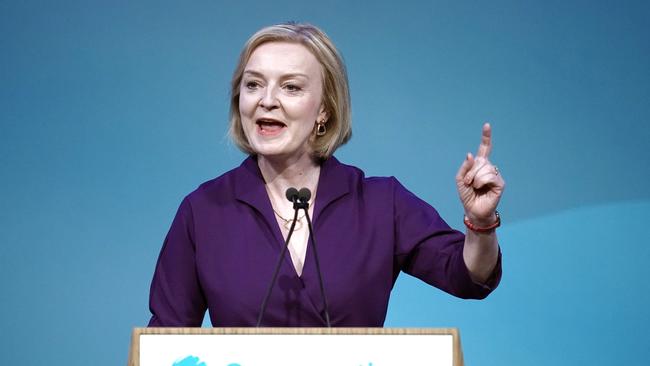
A long journey from the anti-monarchist remainer
Liz Truss has come a long way since the days of chanting “Maggie, Maggie, Maggie, out, out, out” as she marched through the streets of the Scottish city of Paisley with her left-wing parents, furious at Margaret Thatcher’s pro-nuclear policies.
Now, after she travels to Balmoral Castle to see the Queen on Tuesday, this one time anti-monarchist remainer will be confirmed as the 56th British prime minister and leader of the Conservative party – and one of her first duties will be to give a green light to more investment in nuclear power.
On Monday night, Ms Truss was declared as the winner of the ballot of about 142,000 Tory party grassroots members ahead of former chancellor of the exchequer Rishi Sunak to replace the scandal-plagued Boris Johnson. Ms Truss received 81,326 voters to Mr Sunak’s 60,399.
Ms Truss, 47, ignored the applauding Mr Sunak as she marched up to the stage of the London convention hall, calling it an “honour” to be elected after undergoing “one of the longest job interviews in history”.
She immediately promised to “deliver, deliver, deliver” on a plan to cut taxes and grow the economy as well as dealing with the vexed issues of energy bills, the supply of energy and the under-pressure national health service.
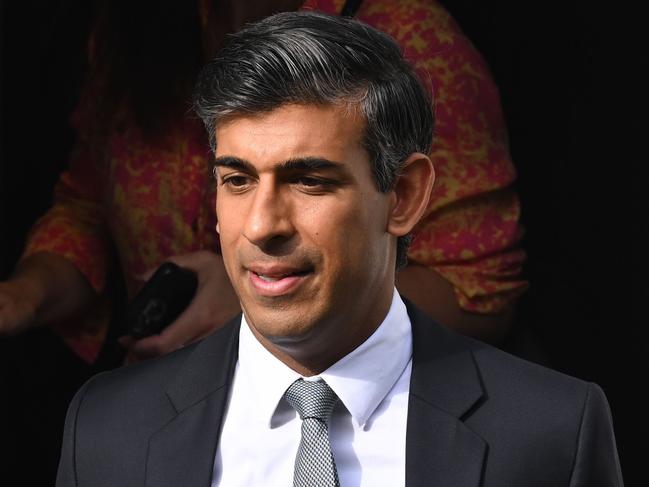
“I campaigned as a Conservative and I will govern as a Conservative,” she said, highlighting the party’s “beliefs in freedom, in the ability to control your own life, in low taxes, in personal responsibility”.
Ms Truss has had numerous metamorphoses over the decades to draw upon as she faces dealing with the country’s extraordinary economic shock: the skyrocketing energy price increases that have begun claiming livelihoods.
Now, as an uncomfortable and unaffordable winter approaches, the Christmas lights are turned off and vulnerable lives are at stake, Ms Truss may have to perform more of her life’s U-turns.
Mary Elizabeth Truss is the mother of two teenage girls. Her marriage to financier Hugh O’Leary survived a publicised affair in 2004 with fellow Tory MP Mark Field, although her political career at the time took a brief hit.
After being raised in Scotland and Leeds in a politically aware family, Ms Truss joined the Liberal Democrats at university before switching to the Conservatives in 1996 after she had read philosophy, politics and economics at Oxford.
At Oxford’s Merton College, one of her tutors in politics was Australian Rhodes scholar Don Markwell, who is well known in the Liberal Party in Australia.
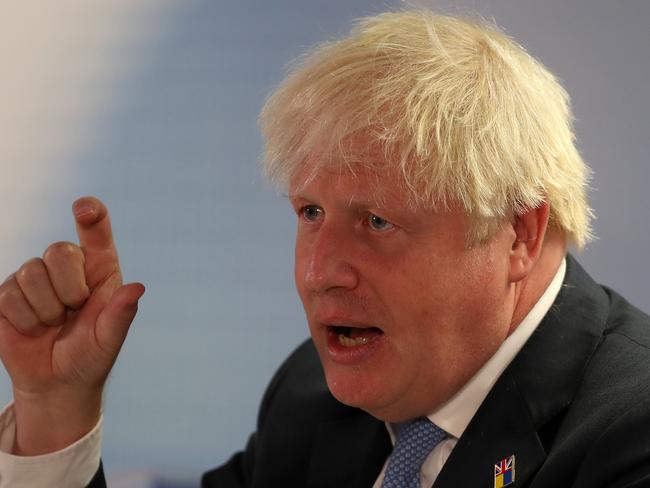
Ms Truss moulded her current right-wing free-trading views – described by close friend, former Australian high commissioner to the UK and Liberal cabinet minister George Brandis as “Thatcherite neo-liberal” – after working in the private sector for Shell and Cable & Wireless.
Her Tory political career began at 25 when she was given the rookie challenge of contesting the Labour heartland Yorkshire seat of Hemsworth at the 2000 election. Her campaigning and securing of a 4 per cent swing was noticed at Tory headquarters.
Ms Truss’s mother, Priscilla, a Nuclear Disarmament protester and teacher, helped with her daughter’s electioneering. Her father, John, a mathematics professor, was so disgusted at her political switch that he refused.
Having entered the House of Commons as the member for South West Norfolk at the 2010 general election, entered the ministry in 2012 and cabinet two years later, she campaigned as a Remainer at the 2016 referendum to leave the EU that cost David Cameron his prime ministership.
Once it was won by the Brexiteers, she jumped wholly behind the Leavers’ standard bearer, Mr Johnson, and supported three years later his successful bid to replace Theresa May as prime minister. Her career boomed. She became minister for women and equalities in 2019 and then trade secretary, where she helped push through the Australia-UK free-trade deal. Since 2021, she has been Foreign Secretary.
Is she a chameleon or opportunist? One of her close counsels is former Australian prime minister Tony Abbott, whom Ms Truss appointed to the UK Board of Trade. He expressed confidence Ms Truss was “a solid conservative who wants to get things done”.
Mr Johnson has called her a “human hand grenade” and her ability to shake up the public service is not questioned.
Most famously, she was one of five authors of a 2012 paper “Britannia Unchained”, which claimed “the British are among the worst idlers in the world”.
Treasury chief secretary for two years under Ms May, she has long promoted growth and a trickle-down style of economics rather than redistribution of wealth. “I am about growing the economy because growing the economy helps everybody,” she told the BBC on Sunday
On the cost-of-living crisis, she is predicted to try to address the root causes of the chaotic gas and energy markets by investing in North Sea gas and oil, reconsidering fracking, and supporting small modular nuclear reactors as well as backing Mr Johnson’s green light for nuclear power.
Analysts predict her plans for tax cuts and allowing the energy market to move without government interference will not withstand the political realities of soaring inflation, a looming recession and public unrest.



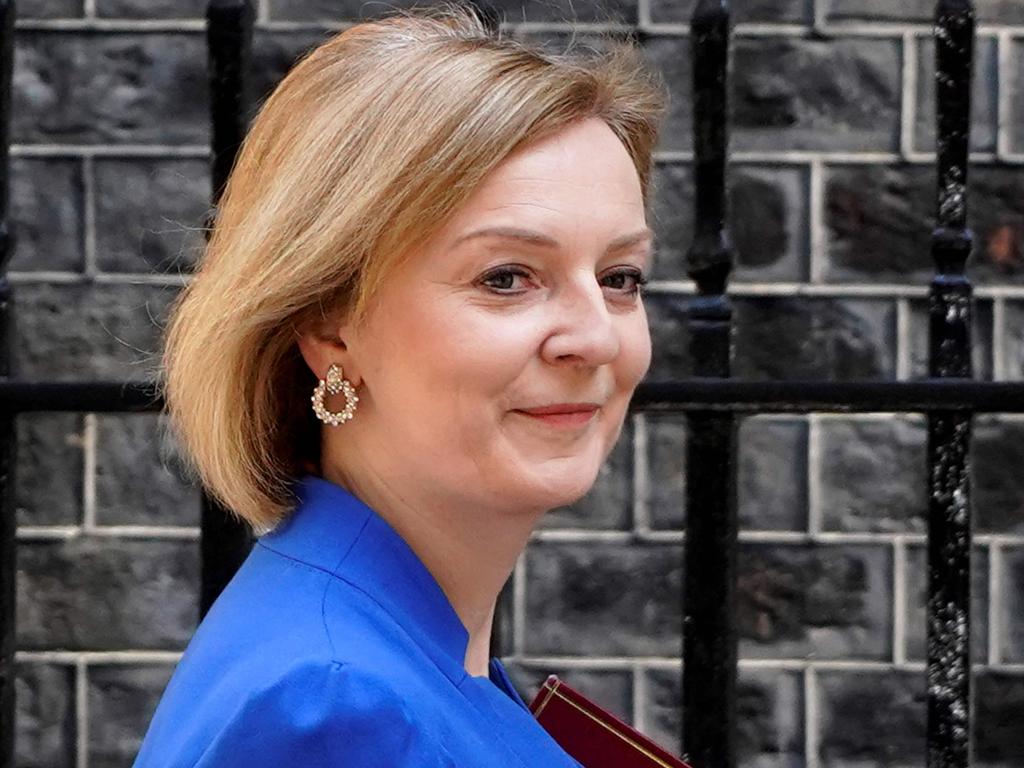


To join the conversation, please log in. Don't have an account? Register
Join the conversation, you are commenting as Logout